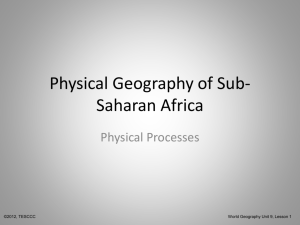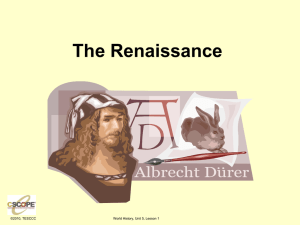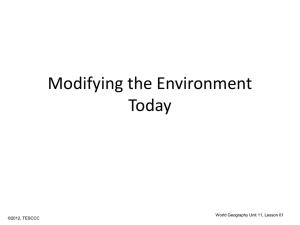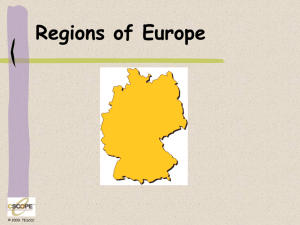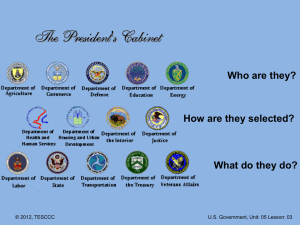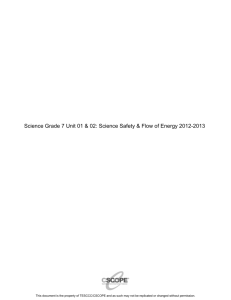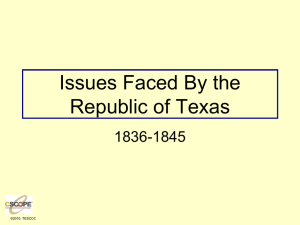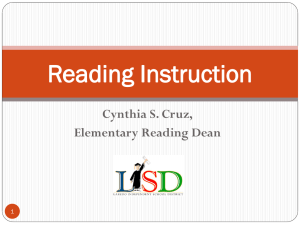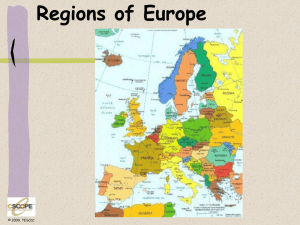European Exploration of North America
advertisement
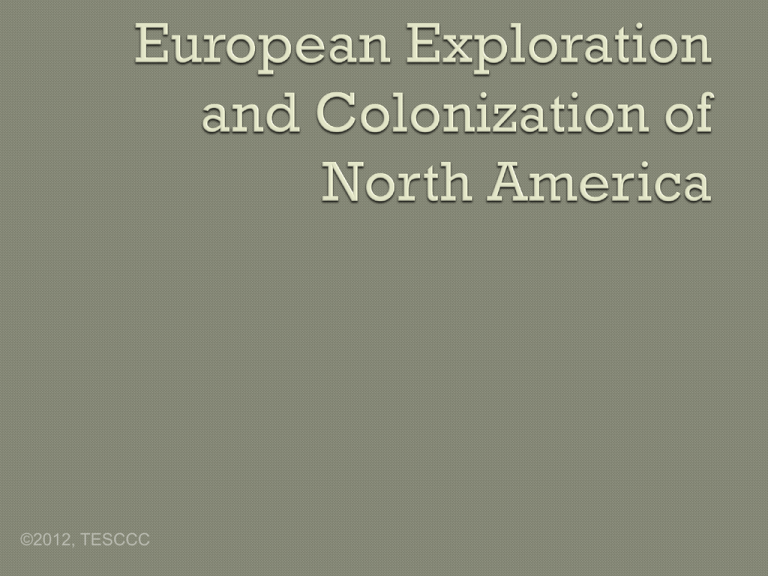
©2012, TESCCC ©2010, TESCC CSCOPE ©2012, TESCCC The Spanish explored the North American continent for main reasons that are categorized as: • To find riches (Goods/Gold) • To spread religion, or Christianity (God) • To expand their empire (Glory) They explored and eventually settled land in present-day Florida, Southwest United States, Mexico, and the islands in the Caribbean. ©2012, TESCCC The French explored North America for these reasons: • In search of a water route through the New World known as the Northwest Passage (all three European countries were in search of a faster, cheaper trade route to Asia) • A source of wealth through fur trade with the Native Americans • To convert Native Americans to Christianity They explored Canada, the Louisiana Territory, and islands within the Caribbean; they eventually set up trading settlements and forts for protection of those settlements. ©2012, TESCCC The English explored North America for these reasons: • In search of sources of wealth (gold) • Convert Native Americans to Christianity • Claim land for England • Search for trade routes • Freedom from religious persecution • Expansion of their empire and become competitive with other powerful European nations such as Spain England saw the North America’s natural resources as means for gaining wealth and international stature. Explorers risked their lives for fame, curiosity, and pride for their nation. The English Colonial Era will start in 1607 with the first permanent settlement at Jamestown by the Virginia Company. This success will lead to the founding of 13 colonies in America. ©2012, TESCCC Mercantilism is an economic theory that states a nation becomes stronger by keeping strict control over its trade It also states that a nation should have more exports than imports ©2010, TESCC CSCOPE ©2012, TESCCC Jamestown Virginia • Founded in 1607 by the Virginia Company it was the first permanent English settlement in the United States. • Founded out of English competition with Spain • Island that was surrounded by the York River, the James River and Chesapeake Bay ©2010, TESCC CSCOPE ©2012, TESCCC the island was swampy, isolated, offered limited space and was plagued by mosquitoes and brackish tidal river water unsuitable for drinking. The first year was a struggle to say the least and many colonists died during the “starving time” ©2010, TESCC CSCOPE ©2012, TESCCC Jamestown received help from Pocahantes and Powhatten John Smith told colonists that they had to work or they could not eat. He was also able to convince Native Americans to trade with them. ©2010, TESCC CSCOPE ©2012, TESCCC Created because they were sick of the harsh treatment by the governor of Virginia First representative assembly in the American Colonies • Provided for more local control of government • Passed laws to prevent royal governor from gaining to much power. This was an important first step against tyranny. ©2010, TESCC CSCOPE ©2012, TESCCC Pilgrims were a seperatist goup that was attacked by King James for rejecting the official church of England. • Fled England in search of Relegious freedom ©2010, TESCC CSCOPE ©2012, TESCCC 1620 the Mayflower landed on a site called Plymouth ©2010, TESCC CSCOPE ©2012, TESCCC For the sake of order all of the men on board signed an agreement called the Mayflower Compact • They vowed to obey laws agreed upon for the good of the colony. • This helped establish the idea of selfgovernment and majority rule. ©2010, TESCC CSCOPE ©2012, TESCCC Starving time • During the first winter half of the group died. Received help from native americans and were able to negotiate peace with local tribes • Tribes taught them to plant crops, hunt, and fish ©2010, TESCC CSCOPE ©2012, TESCCC They began to trade fur with the natives and started cutting timber to send back to the England to start making a profit ©2010, TESCC CSCOPE ©2012, TESCCC Fundamental Orders of Connecticut • Created by the Thomas Hooker’s puritan congregation. • Set of law were like a constitution Extended voting rights to non church members Limited the power of the governor Expanded the idea of representative government ©2010, TESCC CSCOPE ©2012, TESCCC Many colonies were founded on the basis of religious freedom • Many of the religious groups that created communities were self governing Quakers Puritans Pilgrims • Pennsylvania was an experiment in the possibility of equality and citizens involved in government ©2010, TESCC CSCOPE ©2012, TESCCC

